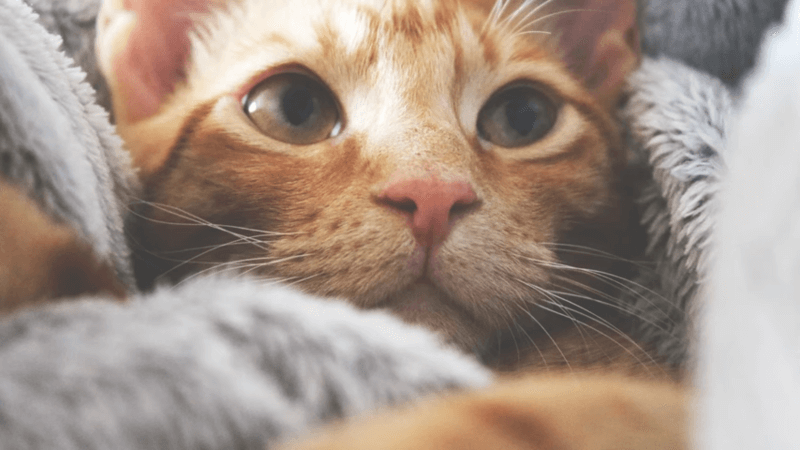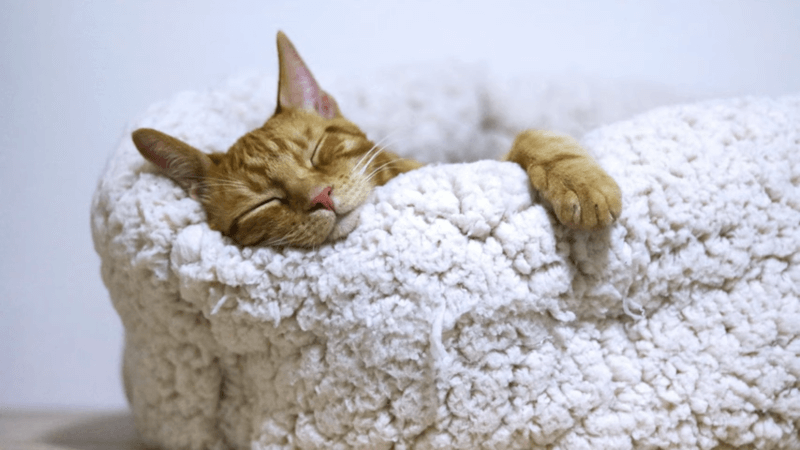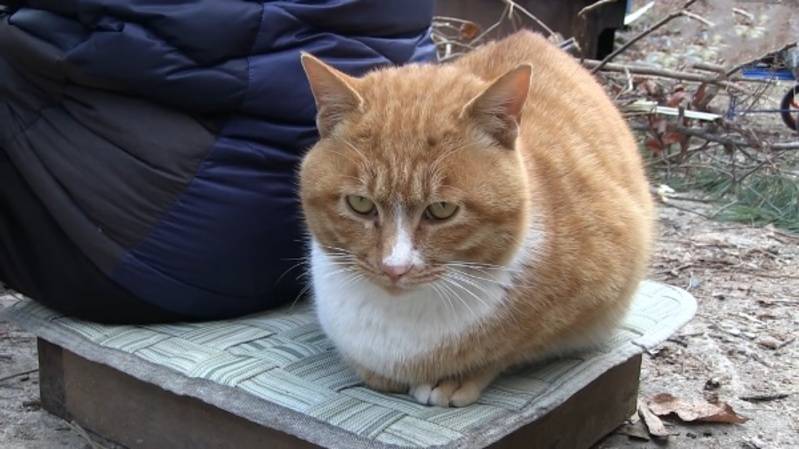No products in the cart.
Are you wondering about CBD oil for cats with inflammation and pain? If you’re a concerned pet owner seeking answers on how to alleviate your feline companion’s discomfort, you’ve come to the right place. Caring for your cat’s health and well-being is a top priority, and finding the correct CBD dosage tailored to their specific needs is crucial.
In this blog, we’ll delve into the intricacies of CBD dosage, how to reduce inflammation in cats, and what can i give my cat for inflammation. Whether you’re seeking a natural remedy or a complementary treatment alongside traditional options, this blog will equip you with the knowledge needed to make informed decisions regarding CBD dosage for inflammation in your cat.
CBD Oil for Cats With Inflammation and Pain
CBD (cannabidiol) is a natural compound found in hemp plants, gaining attention for its potential to manage inflammation in cats. It interacts with the endocannabinoid system (ECS) in the cat’s body, potentially reducing inflammation and pain associated with various conditions.

How Does It Work in the Body?
- ECS Regulation: The ECS consists of receptors (CB1 and CB2) spread throughout the body, including the nervous system, immune system, and organs. CBD interacts with these receptors to help regulate bodily functions.
- Anti-Inflammatory Effects: CBD is known for its anti-inflammatory properties. It can modulate the immune response, reducing inflammation and potentially alleviating associated pain.
- Pain Management: CBD can influence pain perception by interacting with receptors in the nervous system, potentially providing relief from discomfort caused by inflammation.
- Anxiety and Stress Reduction: CBD may also help cats by reducing anxiety and stress, which can contribute to inflammation or worsen its effects.
- Balancing Effects: CBD is believed to promote homeostasis, helping the body maintain balance and overall well-being.
Potential Benefits of Using CBD
Using CBD for inflammation in cats holds promise, as it may offer several potential benefits:
- Anti-Inflammatory Properties: CBD has demonstrated anti-inflammatory effects, which can help reduce inflammation in cats, potentially easing pain and discomfort.
- Pain Relief: CBD may provide pain relief by influencing the perception of pain in the nervous system, making it beneficial for cats experiencing inflammatory pain.
- Reduced Anxiety: If inflammation is linked to stress or anxiety in your cat, CBD’s anxiety-reducing properties may indirectly help alleviate inflammation.
- Fewer Side Effects: Compared to some traditional anti-inflammatory medications, CBD may have fewer side effects, making it a more gentle option for cats.
- Non-Psychoactive: CBD is non-psychoactive and safe for pets, as it doesn’t produce the “high” associated with THC.
- Supports Overall Well-Being: CBD’s potential to balance various bodily functions may contribute to your cat’s overall health.
Safety Considerations and Side Effects
When using CBD for kittens, safety considerations and potential side effects should be taken into account:
- Consult with a Veterinarian: Always consult your veterinarian before giving your cat CBD. They can provide guidance on the appropriate product, and dosage, and monitor your cat’s response.
- Quality Matters: Choose high-quality CBD products specifically designed for pets. Look for products that have been third-party lab tested to verify their CBD content and ensure they are free from harmful contaminants.
- Start with a Low Dose: Begin with a low CBD dose and gradually increase it if necessary. This helps minimize the risk of adverse effects and allows you to find the minimum effective dose.
- Monitor for Side Effects: Keep a close eye on your cat’s behavior and health when introducing CBD. Common side effects may include drowsiness, dry mouth, or changes in appetite. If you notice any concerning side effects, consult your veterinarian.
- Potential Drug Interactions: Be aware of potential interactions between CBD and other medications your cat may be taking. Consult with your veterinarian to ensure there are no adverse interactions.
- Allergies or Sensitivities: Like any substance, some cats may be allergic or sensitive to CBD. Watch for signs of allergies such as itching, hives, or difficulty breathing.
- Long-Term Safety: While CBD appears safe for short-term use, there’s limited research on its long-term effects in cats. Regular check-ups with your veterinarian can help monitor your cat’s health.
Dosage Guidelines
Dosage guidelines for using CBD oil cats can vary depending on factors like your cat’s weight, the severity of their inflammation, and the specific CBD product you’re using. Here’s a general framework to help you establish a starting point:
- Follow Product Instructions: Read the product label carefully for dosage recommendations. Many CBD products designed for pets provide guidelines based on weight. Use these instructions as a starting point.
- Start Low and Go Slow: Begin with a low dose, even if the product suggests a higher dosage. Gradually increase the dosage as needed while monitoring your cat’s response.
- Consider CBD Form: Different CBD products (e.g., CBD oil, treats, capsules) have varying concentrations. Be aware of the CBD content in the specific form you choose.
- Divide the Daily Dose: If your cat requires a larger daily dose, consider dividing it into smaller doses administered throughout the day. This helps maintain a consistent level of CBD in your cat’s system.
- Monitor Your Cat: Pay close attention to your cat’s behavior and any changes in their condition. Adjust the dosage accordingly if you observe improvements or adverse effects.
- Weight-Based Dosage: As a general guideline, a starting dose of approximately 0.1-0.5 milligrams of CBD per kilogram of body weight twice daily is often recommended. However, this can vary widely depending on the product’s concentration and your cat’s needs.
- Keep Records: Maintain a journal to track your cat’s CBD usage, noting the dosage, frequency, and any changes in behavior or inflammation. This can help you find the optimal dose.
How to Reduce Inflammation in Cats
Reducing inflammation in cats is essential for their overall well-being. Here are some ways to help mitigate and manage inflammation:
- Medication: In cases of severe inflammation or chronic conditions, your vet may prescribe anti-inflammatory medications. These may include non-steroidal anti-inflammatory drugs (NSAIDs) or corticosteroids.
- Diet Modification: Switching to an anti-inflammatory diet can be beneficial. Your vet can recommend cat foods that are rich in Omega-3 fatty acids, antioxidants, and other anti-inflammatory ingredients.
- Supplements: Some supplements, such as fish oil or turmeric, may have anti-inflammatory properties. Discuss these options with your veterinarian before adding them to your cat’s diet.
- Weight Management: Obesity can exacerbate inflammation. Ensure your cat maintains a healthy weight through portion control and regular exercise.
- Pain Management: If your cat is in pain due to inflammation, pain management strategies, such as medications or physical therapy, may be necessary.
- Stress Reduction: High stress levels can worsen inflammation. Create a calm and enriched environment for your cat, providing them with toys, scratching posts, and quiet spaces.
- Holistic Approaches: Some cat owners explore holistic therapies like acupuncture or chiropractic care to reduce inflammation. Consult your veterinarian for recommendations.
- Natural Remedies: Certain herbs, like cat’s claw or Boswellia, may have anti-inflammatory properties. Always consult with your veterinarian before using any natural remedies.
- CBD: Some cat owners consider using CBD (cannabidiol) for its potential anti-inflammatory effects. Consult with your vet to determine if it’s suitable for your cat and the correct dosage.

The Importance of Addressing Inflammation in Cats
Addressing inflammation in cats is of paramount importance for several reasons:
- Pain Relief: Inflammation often causes discomfort and pain in cats. Addressing it can provide relief and improve your cat’s overall quality of life.
- Prevent Secondary Health Issues: Chronic inflammation can lead to secondary health issues like organ damage or joint problems. Managing inflammation can help prevent these complications.
- Improved Mobility: Inflammatory conditions, such as arthritis, can limit a cat’s mobility. Treatment can restore their ability to move comfortably.
- Enhanced Well-Being: Reducing inflammation contributes to your cat’s overall well-being, promoting better physical and mental health.
- Longer Lifespan: Managing inflammation can extend your cat’s lifespan by preventing or managing conditions that can be life-threatening.
- Comfort and Happiness: A cat free from chronic pain and discomfort is likely to be happier and more content, leading to a better quality of life for both the cat and its owner.
- Early Detection of Underlying Issues: Addressing inflammation often involves diagnosing and treating the underlying causes, which may include infections, allergies, or other health concerns. Early detection and intervention can be lifesaving.
Inflammation and Its Causes
Inflammation in felines can be caused by various factors and underlying conditions, including:
- Infections: Bacterial, viral, or fungal infections can trigger an inflammatory response in a cat’s body.
- Allergies: Cats can develop allergic reactions to food, environmental factors (e.g., pollen, dust mites), or certain substances, leading to inflammation.
- Injury or Trauma: Physical injuries, such as cuts, bruises, or fractures, can result in localized inflammation at the site of injury.
- Chronic Conditions: Conditions like arthritis, inflammatory bowel disease (IBD), and autoimmune disorders can lead to persistent inflammation.
- Obesity: Overweight cats are at higher risk of developing inflammation, as excess fat tissue can release inflammatory chemicals.
- Dietary Factors: Poor diet choices or food intolerances can contribute to digestive issues and inflammation.
- Environmental Stress: High stress levels can trigger inflammation and exacerbate existing conditions.
- Age: Older cats are more prone to inflammation, especially related to age-related conditions like arthritis.
- Genetics: Some cat breeds may be predisposed to certain inflammatory conditions.
Common Signs and Symptoms
Recognizing the signs and symptoms of inflammation in cats is essential for early intervention and effective treatment. Common signs include:
- Swelling: Visible puffiness in affected areas, like joints or skin, is a telltale sign of inflammation. Keep an eye out for any unusual lumps or bulges.
- Pain or Discomfort: Cats in discomfort may exhibit signs such as limping, reluctance to move, or vocalizing when touched. Their body language can provide valuable cues.
- Redness: Inflammation often results in redness or irritation of the skin, especially at the site of the problem. Gently check their skin for any unusual coloration.
- Heat: Due to increased blood flow, the affected area may feel warmer to the touch. Carefully feel the region for temperature differences.
- Loss of Appetite: Cats experiencing inflammation may lose interest in eating, particularly if it causes discomfort. A decrease in food intake is a significant sign to note.
- Lethargy: Inflamed cats may become lethargic and less active than usual. Keep track of changes in their energy levels.
- Changes in Behavior: Inflammatory conditions can lead to alterations in a cat’s behavior, ranging from increased aggression to withdrawal or avoidance.
- Vomiting or Diarrhea: Inflammation in the digestive tract can result in gastrointestinal symptoms such as vomiting and diarrhea. Pay attention to any changes in their bathroom habits.
- Increased Thirst and Urination: Conditions like kidney inflammation may lead to increased thirst and urination. Monitor water intake and litter box usage.
- Changes in Grooming: Cats may either groom excessively or avoid grooming altogether when experiencing discomfort. Look for shifts in their grooming routine.
- Skin Issues: Inflammatory skin conditions can manifest as rashes, itching, or visible sores. Inspect their skin regularly for any abnormalities.
- Difficulty Breathing: Respiratory inflammation can cause symptoms like coughing or labored breathing. Be attentive to any respiratory distress signs.
What Can I Give My Cat for Inflammation
When it comes to giving your cat something for inflammation, it’s essential to consult with your veterinarian for a proper diagnosis and treatment plan. Your vet may recommend one or more of the following options, depending on the cause and severity of the inflammation:
- Consult Your Vet: Seek professional guidance for inflammation treatment.
- Prescription Medications: Vet-prescribed anti-inflammatories (e.g., NSAIDs) for severe cases.
- Diet Modification: Choose specialized cat food rich in Omega-3s, and antioxidants, and low in inflammatory ingredients.
- Supplements: Consider vet-recommended Omega-3 supplements or fish oil for anti-inflammatory support.
- Pain Relief: Vet-prescribed pain medication may complement inflammation treatment.
- Weight Management: Manage obesity-related inflammation through controlled portions and exercise.
- Holistic Therapies: Some cats benefit from acupuncture or chiropractic care by certified practitioners.
- Natural Remedies: Herbs like cat’s claw or Boswellia, when used, should be discussed with your vet to prevent interactions with other medications.

Tips for Administering CBD to Cats
- Consult Your Veterinarian: Always consult with your veterinarian for guidance on CBD use in cats.
- Choose Pet-Friendly Products: Select high-quality CBD products designed for cats.
- Start with a Low Dose: Begin with a small CBD dose and gradually increase it as needed.
- Consider CBD Oil, Treats, or Capsules: Choose the form that your cat prefers and mix it with their food.
- Divide the Daily Dose: Split larger doses into smaller portions throughout the day.
- Be Patient: Allow time for your cat to adjust to CBD, and monitor their response.
Natural Remedies and Supplements
- Omega-3 Supplements: Omega-3 fatty acids from fish oil can help with inflammation.
- Turmeric: Small amounts of curcumin from turmeric can provide anti-inflammatory benefits.
- Bromelain: This enzyme in pineapples may have anti-inflammatory properties.
- Herbs: Cat’s claw and Boswellia are herbs used to reduce inflammation in cats, but consult your vet.
- Probiotics: Maintain a healthy gut with probiotics for digestive-related inflammation.
- Quercetin: This flavonoid from certain fruits and vegetables has anti-inflammatory potential.
Options for Managing Cat Inflammation
- Prescription Medications: NSAIDs or corticosteroids prescribed by your vet for severe inflammation.
- Diet Modification: Choose a cat food with anti-inflammatory ingredients.
- Supplements: Consider Omega-3s or turmeric supplements under veterinary guidance.
- Weight Management: Control your cat’s weight to reduce inflammation risk.
- Pain Management: Your vet may prescribe pain medications if needed.
- Holistic Therapies: Consult a qualified professional for acupuncture or chiropractic care.
- Natural Remedies: Use natural remedies cautiously and consult your vet.
- CBD: Consult your vet for guidance on CBD use for potential anti-inflammatory effects.
Conclusion
Discover what is CBD oil for cats with inflammation and pain is a crucial aspect of managing their well-being. While various approaches, such as prescription medications, dietary changes, supplements, and holistic therapies, can help address inflammation, CBD offers a promising alternative. With professional guidance and a tailored approach, you can provide your cat with the care they need to lead a comfortable and healthy life, even in the presence of inflammation-related challenges.
I am Nelson Cooper, I pursue my passion for writing and my belief is that cats love humans. I enjoy traveling and have a deep appreciation for the beauty of nature, as well as a soft spot for animals, particularly cats.



